第47章 CHAPTER XIII(2)
I have rolled my hump ( roule ma bosse )," he said, using the slang expression with imperturbable seriousness, "in all parts of the world;I have known brave men--famous ones! Allez! " . . . He drank carelessly.
. . . "Brave--you conceive--in the Service--one has got to be--the trade demands it ( le metier veut ca ). Is it not so?" he appealed to me reasonably. " Eh bien! Each of them--I say each of them, if he were an honest man-- bien entendu --would confess that there is a point--there is a point--for the best of us--there is somewhere a point when you let go everything ( vous lachez tout ). And you have got to live with that truth--do you see? Given a certain combination of circumstances, fear is sure to come. Abominable funk ( un trac epouvantable ). And even for those who do not believe this truth there is fear all the same--the fear of themselves. Absolutely so. Trust me. Yes. Yes. . . . At my age one knows what one is talking about-- que diable! " . . . He had delivered himself of all this as immovably as though he had been the mouthpiece of abstract wisdom, but at this point he heightened the effect of detachment by beginning to twirl his thumbs slowly. "It's evident-- parbleu! "he continued; "for, make up your mind as much as you like, even a simple headache or a fit of indigestion ( un derangement d'estomac ) is enough to . . . Take me, for instance--I have made my proofs. Eh bien! I, who am speaking to you, once . . ."`He drained his glass and returned to his twirling. "No, no; one does not die of it," he pronounced, finally, and when I found he did not mean to proceed with the personal anecdote, I was extremely disappointed; the more so as it was not the sort of story, you know, one could very well press him for. I sat silent, and he too, as if nothing could please him better. Even his thumbs were still now. Suddenly his lips began to move.
"That is so," he resumed, placidly. "Man is born a coward ( L'homme est ne poltron ). It is a difficulty-- parbleu! It would be too easy otherwise. But habit--habit--necessity--do you see?--the eye of others-- voila .
One puts up with it. And then the example of others who are no better than yourself, and yet make good countenance. . . ."`His voice ceased.
"`That young man--you will observe--had none of these inducements--at least at the moment," I remarked.
`He raised his eyebrows forgivingly: "I don't say; I don't say. The young man in question might have had the best dispositions--the best dispositions,"he repeated, wheezing a little.
"`I am glad to see you taking a lenient view," I said. "His own feeling in that matter was--ah!--hopeful, and . . ."`The shuffle of his feet under the table interrupted me. He drew up his heavy eyelids. Drew up, I say--no other expression can describe the steady deliberation of the act--and at last was disclosed completely to me. I was confronted by two narrow grey circlets, like two tiny steel rings around the profound blackness of the pupils. The sharp glance, coming from that massive body, gave a notion of extreme efficiency, like a razor-edge on a battle-axe. "Pardon," he said, punctiliously. His right hand went up, and he swayed forward. "Allow me . . . I contended that one may get on knowing very well that one's courage does not come of itself ( ne vient pas tout seul ). There's nothing much in that to get upset about.
One truth the more ought not to make life impossible. . . . But the honour--the honour, monsieur! . . . The honour . . . that is real--that is! And what life may be worth when" . . . he he got on his feet with a ponderous impetuosity, as a startled ox might scramble up from the grass . . . "when the honour is gone-- ah ca! par exemple --I can offer no opinion. I can offer no opinion--because--monsieur--I know nothing of it."`I had risen, too, and, trying to throw infinite politeness into our attitudes, we faced each other mutely, like two china dogs on a mantelpiece.
Hang the fellow! he had pricked the bubble. The blight of futility that lies in wait for men's speeches had fallen upon our conversation, and made it a thing of empty sounds. "Very well," I said, with a disconcerted smile, "but couldn't it reduce itself to not being found out?" He made as if to retort readily, but when he spoke he changed his mind. "This, monsieur, is too fine for me--much above me--I don't think about it." He bowed heavily over his cap, which he held before him by the peak, between the thumb and the forefinger of his wounded hand. I bowed, too. We bowed together: we scraped our feet at each other with much ceremony, while a dirty specimen of a waiter looked on critically, as though he had paid for the performance.
" Serviteur," said the Frenchman. Another scrape. "Monsieur" . . . "Monsieur." . . . The glass door swung behind his burly back. I saw the southerly buster get hold of him and drive him down wind with his hand to his head, his shoulders braced, and the tails of his coat blown hard against his legs.
`I sat down again alone and discouraged--discouraged about Jim's case.